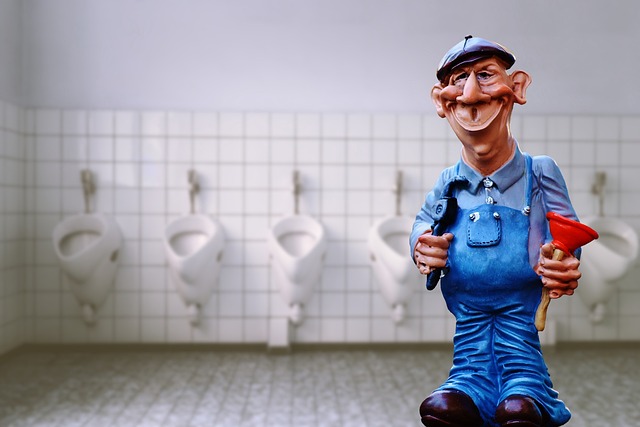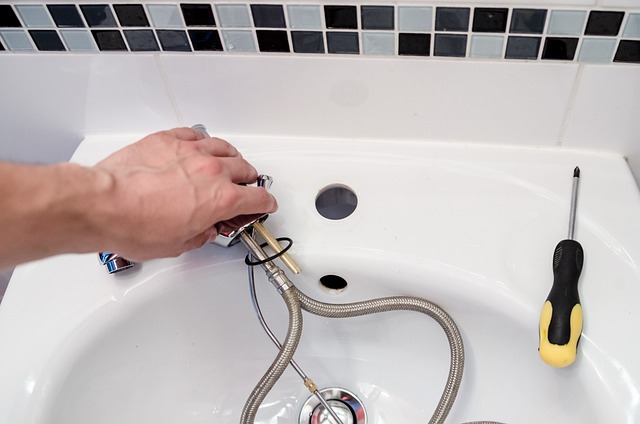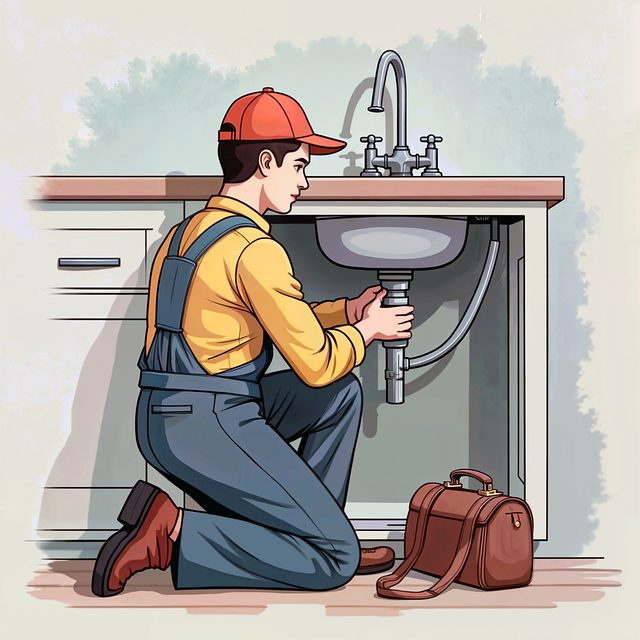Hard water, high in calcium and magnesium, causes significant plumbing problems like reduced pressure, clogged pipes, and inefficient appliances due to mineral buildup. These issues stem from geological factors and aging systems. Preventative measures include installing water softeners, regular maintenance, using water-efficient appliances, and natural descaling agents to mitigate Common Plumbing Issues associated with hard water.
Hard water, a common issue in many homes, can have significant impacts on your plumbing system. This natural phenomenon, caused by high mineral content, leads to various problems over time. From scaled-up pipes and fixtures to reduced water pressure and efficiency of appliances, understanding the truth about hard water is crucial for maintaining a healthy plumbing system. In this article, we’ll explore common plumbing issues associated with hard water and offer solutions for prevention and mitigation.
Understanding Hard Water: Causes and Characteristics

Hard water is a common plumbing issue that plagues many homes and businesses, causing a range of problems from reduced water pressure to clogged pipes and inefficient appliances. Understanding what hard water is and its causes is the first step in mitigating these issues. Hard water is characterized by high mineral content, primarily calcium and magnesium, which accumulate over time within pipes and appliances. This buildup can lead to reduced water flow, as minerals narrow the pipe’s interior, and it also contributes to the corrosion of pipes and fixtures.
Several factors contribute to hard water, with the primary sources being geological and environmental. Regions with rock formations rich in calcium and magnesium often have harder water due to these minerals filtering into the water supply. Additionally, older plumbing systems can accelerate mineral buildup due to corrosion and the wear and tear that come with age. The presence of hard water is not always apparent until common plumbing issues start arising, making awareness and proactive measures crucial for maintaining a healthy plumbing system.
Common Plumbing Issues Caused by Hard Water

Hard water, rich in minerals like calcium and magnesium, can wreak havoc on plumbing systems over time. One of the most visible consequences is the buildup of scale inside pipes, heaters, and appliances. This mineral deposit not only reduces water flow but also shortens the lifespan of these components. It’s not uncommon for homes with hard water to experience clogs and backups in drains and toilets due to the increased stickiness of waste material in the presence of scale.
Beyond everyday annoyances, hard water can lead to more serious Common Plumbing Issues. For instance, it can weaken the integrity of pipes, causing them to leak or burst. Water heaters are particularly vulnerable, as the mineral buildup can insulate the water inside, making the heater work harder and potentially leading to inefficiencies or even failure. Regular maintenance becomes crucial in such cases, including filtering systems that soften the water and reduce these adverse effects.
Solutions and Prevention Strategies for Hard Water Impact on Plumbing

Hard water can cause a range of common plumbing issues over time, from clogs and mineral buildup in pipes to reduced water pressure and scaled-up appliances. To mitigate these problems, several solutions and prevention strategies are available. One effective approach is installing a water softener, which uses an ion exchange process to reduce the levels of calcium and magnesium in hard water, preventing mineral deposits from accumulating in pipes and fixtures. Regular maintenance, such as cleaning or replacing filters and checking for leaks, can also help extend the lifespan of plumbing systems.
Additionally, using water-saving appliances and fixtures can lessen the strain on plumbing, reducing the risk of damage caused by hard water. Avoid using harsh chemicals for descaling, as they can corrode pipes and fittings. Instead, opt for natural remedies like white vinegar or baking soda, which are safer for both your plumbing and the environment. By combining these preventive measures, homeowners can significantly minimize the impact of hard water on their plumbing systems.
Hard water, while often overlooked, can significantly impact your plumbing system over time. By understanding its causes and effects, such as mineral buildup and common plumbing issues like reduced water pressure and frequent clogs, you can take proactive measures. Implementing solutions like water softeners or regular maintenance checks can help prevent these problems, ensuring your plumbing remains efficient and prolonging the lifespan of your fixtures and appliances.
